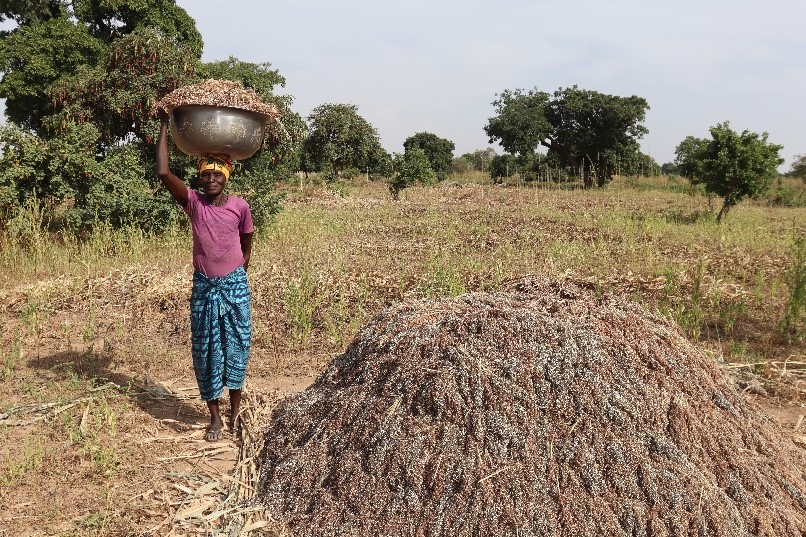
Sustainable Farming Doubles Yield
Noali doubled the sorghum production on her one and a half acre farm from 550 lbs. to 1100 lbs. How’d she do that?
By using a variety of climate-smart, environmentally friendly agriculture practices to improve her soil. Before receiving training on applying organic compost and switching to an improved seed variety, Noali recognized that her soil was poor and that the problem with weed infestations were related. But she didn’t know what to do about them.
The goal of local partner Office Developpement Eglises Evangeliques (ODE) is to assist smallholder farmers, especially women, to improve their food security through more efficient farm production and market linkages. ODE demonstrates dry-land farming techniques like planting in zaï holes to capture available rainwater, retaining the moisture and controlling weeds under green cover crops which can also be used to feed livestock, and enriching the soil with organic matter. ODE sources seed that is more suitable to the climate, and when farmers begin producing higher yields they can start saving their own seed for future planting.
ODE staff is on hand for technical support to participants like Noali, the head of a seven-member household whose main livelihood is agriculture. The sorghum she grows is now enough to feed her family, and what she sells brings in an income to cover household expenses and purchase food to improve the family diet with vegetables and grains she doesn’t grow.
Noali agreed to share her story because, she said, others might benefit in the same way she has by applying her new knowledge and reaping the rewards. And she welcomed the opportunity to thank donors and ODE for the support which has made such a difference to her and her dependents.
Burkina Faso Gnagha Program
Led by Mennonite Central Committee and Local Partner Office Developpement Eglises Evangeliques
